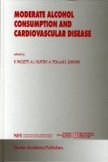| |
|
|
| |
|
PREFACE
The
effects of alcohol consumption on human health have fuelled a vigorous scientific
debate in recent years. This volume, based on the scientific sessions of the
International Meeting on MODERATE ALCOHOL CONSUMPTION AND CARDIOVASCULAR DISEASE,
held in Venice October 30-31, 1999, is intended to offer an up-to-date view
of the most recent information on this complex topic.
While comprehension of the damages associated with alcohol abuse has improved,
an increasing number of epidemiological studies performed in different countries
of the world, have shown that individuals consuming moderate amounts of alcohol
(10-30 g/day, approximately equivalent to not more than two drinks per day
in men and one drink per day in women) are less affected by acute coronary
events than total abstainers.
The apparent protection is evident (the rate of coronary events in most studies
is reduced by about 30%) and has been observed and documented among various
population groups (men, women, several racial groups, middle-aged and older
individuals).
Protection is seen in patients with no known history of coronary heart disease,
as well as in those with coronary heart disease, diabetes, etc. Recent data
suggest that the protection induced by a moderate alcohol use extends to the
risk of ischemic strokes and of ischemic damage to the lower limbs.
Since adverse alcohol effects are less frequent at these low daily intakes, total mortality is also favourably affected in moderate alcohol consumers as compared to abstainers. The mechanisms underlying the antiatherogenic effects of alcohol are now better understood. Alcohol consumption significantly and consistently raises the plasma levels of the antiatherogenic HDL lipoproteins. The tendency to thrombosis is also favourably affected (partially via decreased plasma fibrinogen levels), while the efficiency of fibrinolytic pathways seems to be improved.
An ongoing debate focuses on the possible additional antiatherosclerotic effects of some nonalcohol component of specific alcoholic beverages. The antioxidant effects of a few minor components of wine (and especially red wine) may contribute to the antiatherosclerotic action of this beverage, modulating the processes leading to LDL oxidation and eventually to the formation, growth, and maturation of the atherosclerotic plaque.
The
role of beverage choice remains unresolved. We hope this volume of Proceeding
from the International Meeting on MODERATE ALCOHOL CONSUMPTION AND CARDIOVASCULAR
DISEASE will be of help to the clinicians and researchers interested in this
fascinating area of human behaviour.
The editors would like to thank Ann Jackson of the GIOVANNI LORENZINI MEDICAL FOUNDATION for her editorial coordination and assistance in the preparation of this volume.
The Editors
